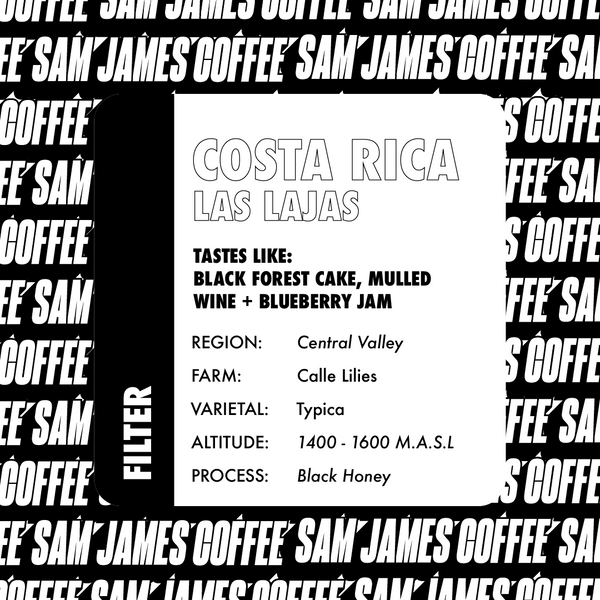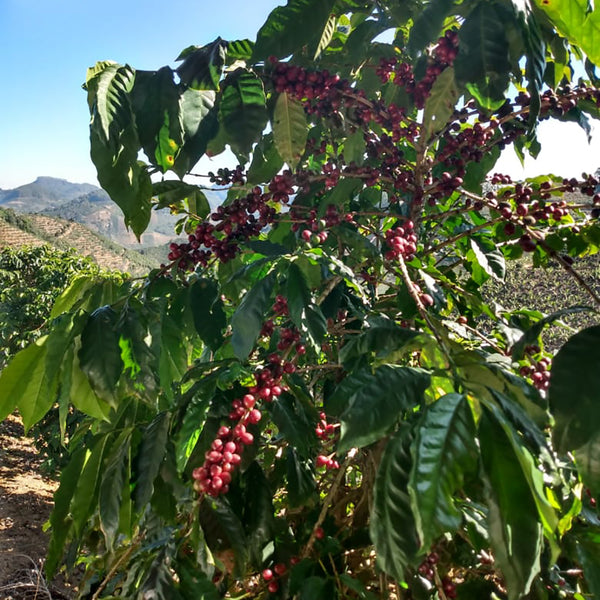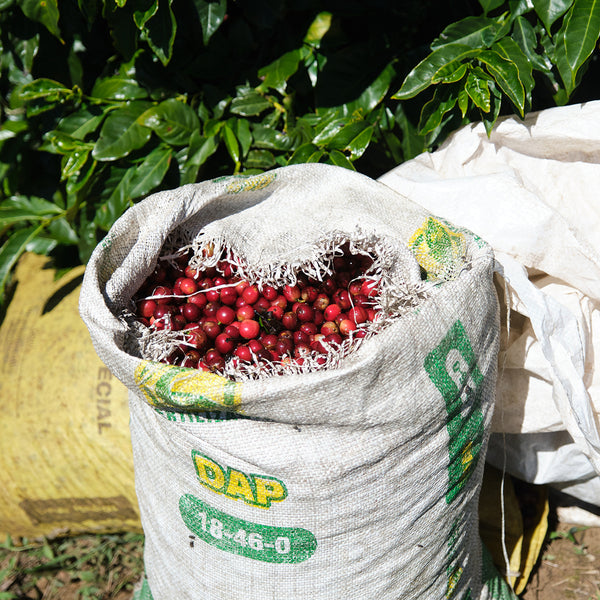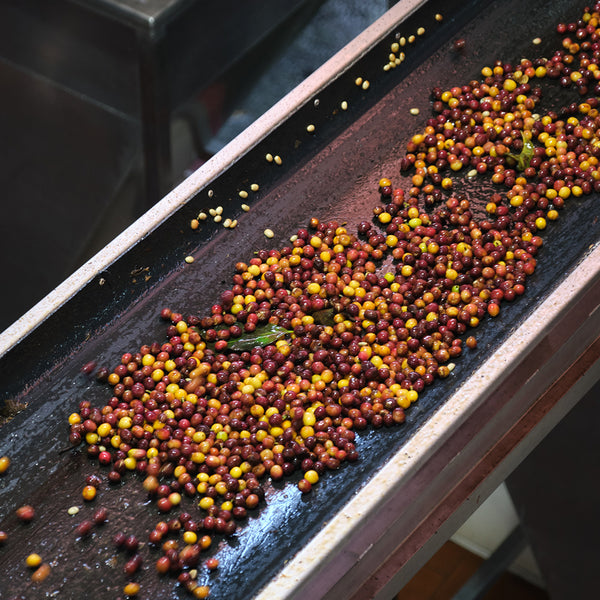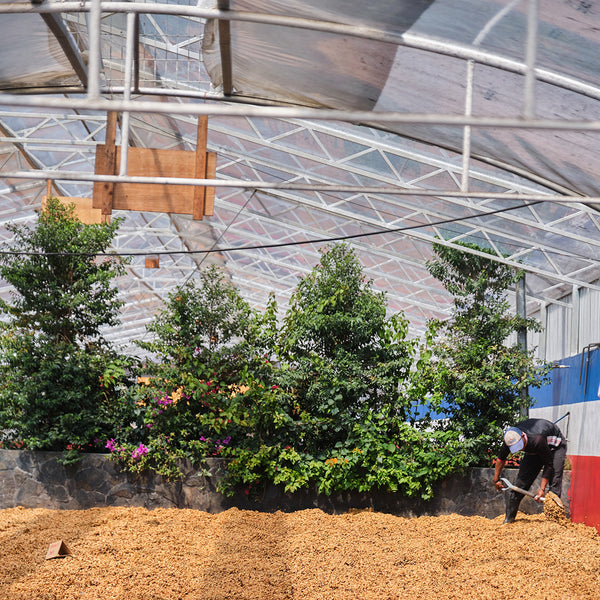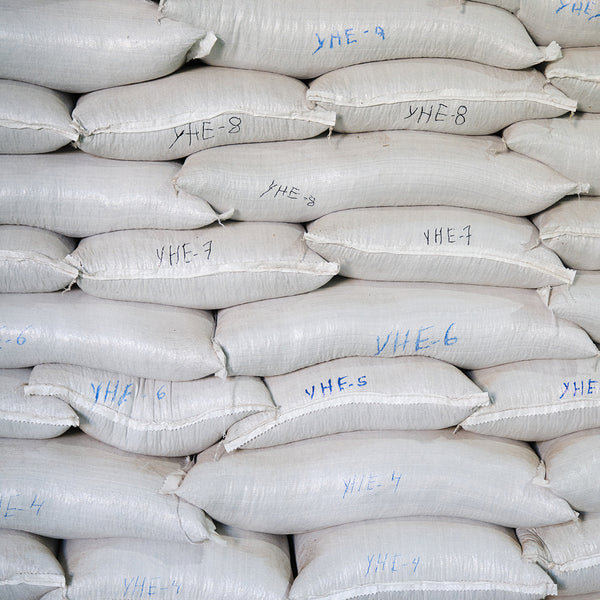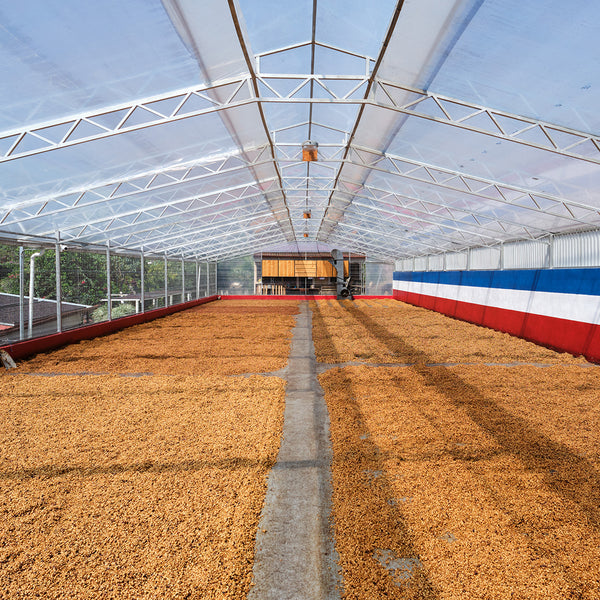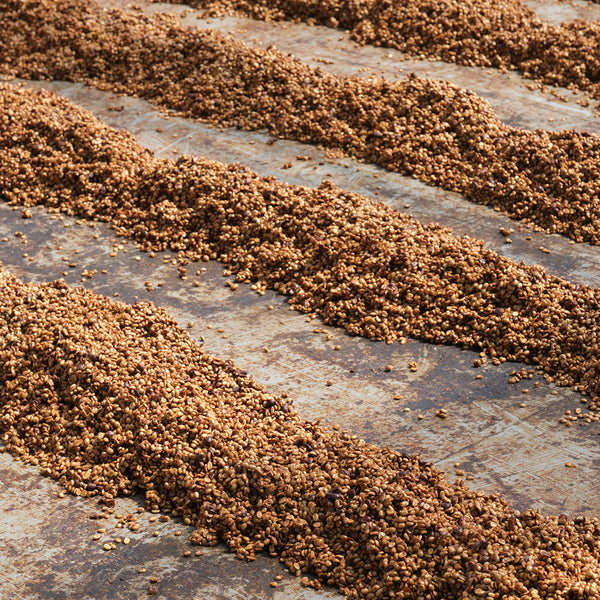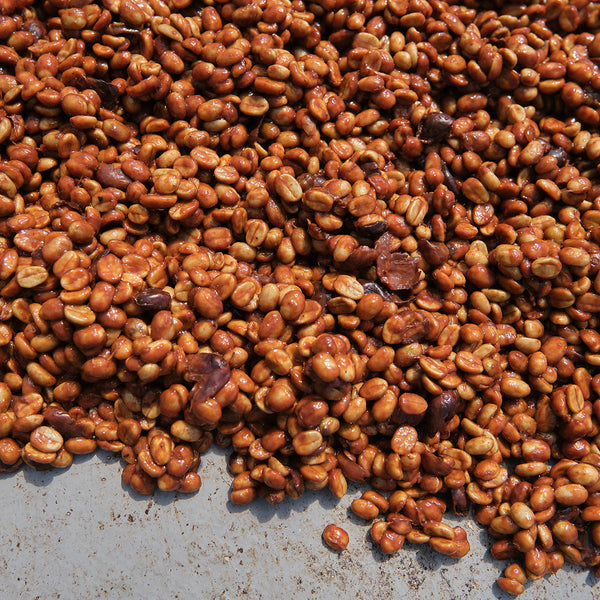Reviews (1)
Customer Reviews
COSTA RICA: LAS LAJAS
(BLACK HONEY, MICROLOT)
TASTES LIKE: BLACK FOREST CAKE, MULLED WINE, + BLUEBERRY JAM
12oz / 340g bags only
Farm: Las Lajas, finca Calle LIlies
Varietal: Typica
We are very excited to offer you this uniquely refined single-varietal microlot coffee.
WATCH SAM AND BRUCE CUP THIS COFFEE AND FIND OUT HOW IT TASTES
In the Central Valley, the Las Lajas Micromill at La Calle Lilies Farm has processed this Typica coffee in a style called Black Honey.
Process: Black Honey
These beans have no actual honey, despite their name and sticky appearance. The process originated in Costa Rica and uses less water than “natural” or “washed” process coffees.
The Black Honey process is a specific process initially developed by Las Lajas. Freshly harvested and sorted cherries are delivered to the mill and promptly depulped. After this, the coffee is transferred to a covered patio where it is only turned one time a day until the drying process is complete.
This is a honey process where the cherries must first be classified and then pulped and transferred to raised beds. During the first 2 days, the beans do not receive any movement until the third day, when they begin to make periodic movements (3 to 4 times a day) to reduce the humidity of the coffee.
Drying Time: 15 - 20 days
Resting Time: 60 days or until exportation
Farm: Las Lajas, Calle Lilies
Oscar and Francisca Chacón are third-generation coffee producers, but the coffee is more than just in their family heritage: It's in their hearts and souls as well. The couple is committed to quality and innovation, and are among the very first farmers in Costa Rica to produce Honey and Natural process specialty coffee.In 2005, after years of delivering their cherry to a cooperative for the going market price, they decided to join the brand-new "micromill revolution" and buy their own depulper to have more control over the quality and the price they received for their lots. "At first, we didn't know what we were doing," Oscar explains. "We were just experimenting." That experimentation led to some of the most exciting new flavor profiles we have ever tasted: Now, the Chacons produce a wide range of Honey process coffees, modulating the drying time in order to create different effects in the cup.
Necessity bred more innovation for the family when an earthquake in 2008 wiped out electricity and water to their area during the harvest. Unable to run the depulpers or to wash the mucilage off to produce Washed lots, Francisca took inspiration from her knowledge of African coffee production and quickly built raised beds on the property. Their Natural lots caught the attention of Cafe Imports' founder Andrew Miller, and the rest is both history and our-story.
Variety: Typica
Typica is one of the root varieties of Coffea arabica, a mutation of one or more selection from Ethiopia planted in Yemen and then transplanted to Java by the Dutch in the 17th century.
Region: Central Valley
The Central Valley of Costa Rica is the heart of the country’s coffee industry. The high elevation, consistent weather patterns, frequent rains, and volcanic soil contribute to the wide range of offerings we are able to source form this region. Producers in the Central Valley often grow traditional hybrids and apply some of Costa Rica’s most forward-thinking processing techniques.
Country: Costa Rica
As the first Central American country to fully establish a coffee industry, the history of coffee in Costa Rica is long and full of great economic significance. Coffee was planted in Costa Rica in the late 1700s but it was not until the 1820s that coffee became a major agricultural export for the country. In 1846, national output was greatly increased by the completion of a main road to Puntarenas, allowing farmers to more readily bring their coffee from their farms to market in oxcarts—which remained the way most small farmers transported their coffee until the 1920s.
Microlots from Costa Rica are typically sourced from producers who have invested not only in growing their farms, but also in building and operating their own processing facilities, typically called "micromills." Micromills typically yield fewer than 1,000 bags annually, and are often independently owned by a family or small group of producers. Microlots in Costa Rica are separated out based on differentiated characterizations such as processing, variety, or some other aspect.
Microlots carry the highest quality as well as the highest level of traceability. Our importers Costa Rican office in the capital city of San José: Oxcart Coffee is a full-service import-export operation that allows us to work directly with growers, build better connections and keep a closer eye on the quality and logistics of all coffee shipments leaving Costa Rica.
ABOUT COSTA RICAN COFFEE:
Coffee was planted in Costa Rica in the late 1700s, and it was the first Central American country to have a fully established coffee industry. Costa Rica contributes less than 1% of the world’s coffee production, yet it has a strong reputation for producing excellent, easy-to-drink coffee.
Lcafe is the national coffee association, an NGO that assists in the agricultural and commercial development of the Costa Rican coffee market. It is funded by an export tax on all coffee, which is used for scientific research into Arabica genetics and biology, plant pathology, soil and water analysis, and industry oversight.
Lcafe exists to guarantee that contract terms for Costa Rican coffee ensure the farmer receives 80% of the “free on board” price, where the ownership and price risks are transferred from the farmer/seller to the buyer.
One way that Costa Rica has differentiated itself from coffee-growing nations is through the diversity of profiles in its growing regions, despite its relatively small geographical size.


